Plenary Speakers
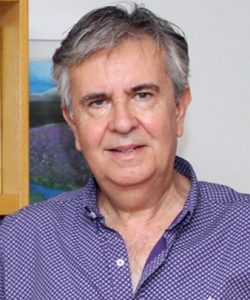
Alejandro Olivieri
National University of Rosario, Argentina
Title of lecture: Rotational ambiguity effects in second-order calibration using multivariate curve resolution
Alejandro Olivieri, a retired Professor of Analytical Chemistry at the Department of Analytical Chemistry, Faculty of Biochemical and Pharmaceutical Sciences, University of Rosario, stands as a distinguished Researcher at the National Research Council (CONICET-Argentina). Renowned for his countless contributions to chemometrics in analytical chemistry, his scientific research is dedicated to advanced analytical methods for complex mixtures using chemometrics and developing new chemometric models. Alejandro has a prolific portfolio encompassing over 250 scientific publications and review articles in leading journals. Additionally, he has served as co-editor of two influential books on chemometrics in analytical chemistry and holds the associate editor position at the Microchemical Journal (Elsevier). Alejandro has mentored and guided ten doctoral theses, numerous doctoral and postdoctoral fellows, and researchers affiliated with CONICET. His dedication and expertise culminated in prestigious recognitions, including the Platinum Award in Physical, Inorganic, and Analytical Chemistry from the Konex Foundation in 2013 and the illustrious Houssay Award in Chemistry from the Ministry of Science, Technology, and Innovation of Argentina in 2021, honoring his prolific career trajectory.
.
.
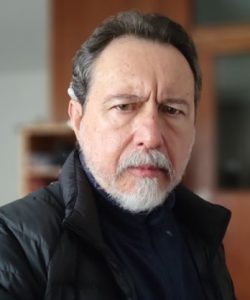
Celio Pasquini
University of Campinas, Brazil
Title of lecture: Chemometrics and Near-Infrared Spectroscopy in Forensic Analysis
Celio Pasquini was born in Espírito Santo do Pinhal – São Paulo State – Brazil in 1957. He graduated from Chemistry Institute of the State University of Campinas (UNICAMP) – Campinas – São Paulo – Brazil in 1978 where he also obtained the M.S (1980) and Ph.D. (1983) degrees in Analytical Chemistry. After he finished his M.S in the year 1980, he was hired by the Department of Analytical Chemistry of the Chemistry Institute – UNICAMP were he served as full professor until September 2018. Pasquini took a post-doctoral leaving at the King’s College – London during two years from 1986 – 1988 in the topics of Analytical Instrumentation and Interfacing Microcomputers to Analytical Instruments. He served as Director of the Chemistry Institute – UNICAMP for the term 2000 – 2004. He retired as full professor in 2018 and currently is a guest researcher at UNICAMP. He coordinates the National Institute of Advanced Analytical Sciences and Technologies (INCTAA). His research interests are in the area of Chemistry, with emphasis on Analytical Chemistry, mainly on the following topics: flow injection analysis, monosegmented flow analysis, multivariate analysis, near infrared spectroscopy (NIR), laser induced breakdown spectroscopy (LIBS), terahertz time-domain spectroscopy (THz-TD), THz Raman spectroscopy and development of analytical instrumentation. During his career, Pasquini has supervised 19 M.S and 26 PhD. students at the Chemistry Institute – UNICAMP and published 168 papers, which are cited more than 6000 times, and he has a H-index of 34.
.
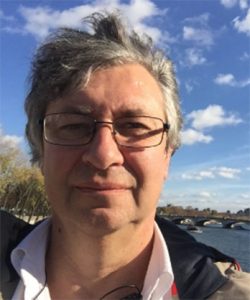
Jean-Michel Roger
French National Institute for Agriculture, Food, and Environment (INRAE), France
Title of lecture: Managing and improving calibration robustness: an update on domain adaptation and calibration transfer methods
Jean-Michel Roger is a senior researcher in chemometrics, mainly applied to near infrared spectroscopy. A member of the French Chemometrics Group, the International Board of Chemometrics for Analytical Chemistry, the International Council for Near Infrared Spectroscopy, he was awarded the Tomas Hirschfeld Award in 2016. Currently, his research focuses on the robustness of NIR calibrations, variable selection and multiblock analysis. He applies his research to the fields of digital agriculture, phenotyping, waste sorting and the monitoring of various biological processes.
.
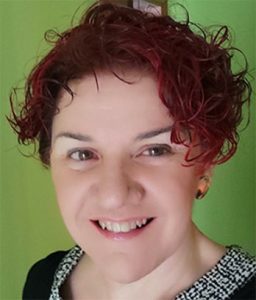
Anna de Juan
University of Barcelona, Spain
Title of lecture: Image fusion unmixing. Challenging data structures, models and algorithms in Multivariate Curve Resolution.
Anna de Juan is an associate professor at the Department of Analytical Chemistry at the University of Barcelona since 2003, where she leads the Chemometrics group. Her expertise is in the development of chemometric methods, in particular Multivariate Curve Resolution methodologies, for data fusion and analysis of complex analytical measurements, such as hyperspectral images and monitoring and control of bioanalytical and industrial processes. She is member of the Editorial Advisory Board of Chemometrics and Intelligent Laboratory systems, Analytica Chimica Acta and acted as Analytical Chemistry editor of Scientific Reports. Since 2023, she is Associate Editor-in-chief of Journal of Chemometrics. In 2004 she received the 4th Chemometrics Elsevier Award and in 2023 the TIC2023 award for Comprehensive Collaboration in Chemometrics. She has served as invited professor in research stages and graduate schools in Dalhousie Univ (Canada), Univ. Lille (France), Univ. Copenhagen (Denmark), Università degli study di Modena e Reggio Emilia (Italy) among others. She is currently member of the board of the Catalan Chemical Society and delegate of the Division of Analytical Chemistry (DAC) of EuChemS. She has organized and fostered conferences in the areas of Chemometrics, Process Analytics and Chemistry.
.
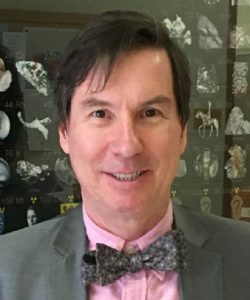
Peter Harrington
Ohio University, USA
Title of lecture: Recent Advances in Chemometrics: keeping the chemistry in chemometrics
After graduating from Randolph-Macon College in 1980, Peter worked for two years as a flavor chemist for Nabisco Brands and learned about chemometrics. He graduated from the University of North Carolina-Chapel Hill in 1988 under the tutelage of Tom Isenhour. His research focuses on developing automated chemometric systems and pipelines primarily for spectroscopic identification and authentication of natural medicine. During his 34-year tenure as a professor, he has developed many new algorithms and methods that are key to the proposed work. Recently, he developed the self-optimizing radial basis function-support vector machine, a self-optimizing elastic net, a metric for evaluating nonlinearity in models, feature selection in complex models, elastic principal components analysis that removes unimportant features, and similar algorithms for partial least squares and discriminant analysis. His prolific career is demonstrated by more than 230 publications in the most significant scientific journals and his countless presentations at diverse scientific events. Peter has been granted numerous Awards and recognition for his significant contributions to the analytical chemistry and chemometric fields.
He has produced 7 M.S and 22 PhD students. He also has hosted 8 visiting scholars from around the world.
.
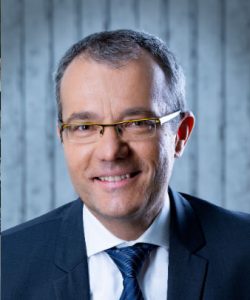
Bernhard Lendl
Vienna University of Technology, Austria
Title of lecture: Shining light on protein folding using mid-IR laser spectroscopy and chemometrics
Prof. Dr. Bernhard Lendl received his PhD in Technical Chemistry from TU Wien in 1996. In 2001, he became an associate professor at TU Wien. Since 2011 he has headed the research division on Environmental and Process Analytical Chemistry at TU Wien where he was appointed full professor for Vibrational Spectroscopy in 2016. His research focuses on advancing analytical sciences through the development of novel analytical techniques and instrumentation based on infrared and Raman spectroscopy and their application to environmental and process analytical chemistry, material characterization as well as bio-medical diagnostics. An important field of research concerns the use of broadly tunable mid-IR quantum cascade lasers for the study of proteins in aqueous solution, a field of research, where multivariate curve resolution alternating least squares is used for the analysis of multiway data sets. Since August 2023, he has been an honorary professor at the University of Nottingham (UK).
Lendl is a recipient of the Norman Sheppard Award from the IRDG (2022), the Agilent Thought Leader Award (2021), the Anton Paar Research Award (2018), the Robert Kellner Lecture DAC (EuCheMS) in 2015, and others.
.